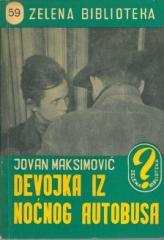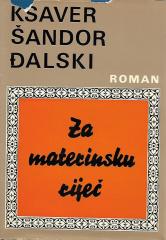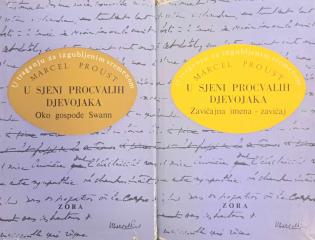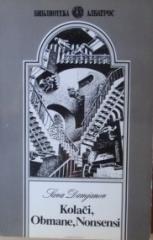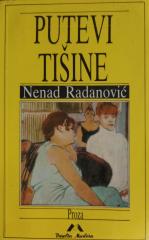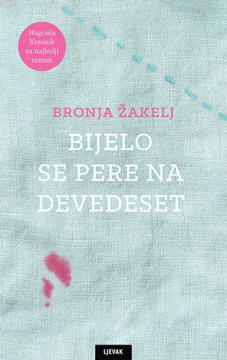
Bijelo se pere na devedeset
The autobiographical novel White Washed at Ninety is a poignant and moving literary story about dealing with illness, transience and fears. It is also a story about love - between daughter and mother, brother and sister, grandson and grandmother, a girl g
From the first pages of the novel, in the company of the girl Bronja, we move to the seventies and eighties of the last century, where she introduces us to her family: adored mother Mita, father Janez, four years younger brother Rok and Dada, grandmother on the mother's side. That small community lives in Ljubljana, where Bronji's and Roko's uncles and aunts are also family friends. The emotion that prevails in this small household is closeness, especially that between the narrator Bronja and her mother, to whom this work is addressed. The bright and playful time of childhood is the calm before the storm because the dark clouds of death have loomed over the whole family. Bronja's world is shaken with lightning speed by her mother's diagnosis.
As a fourteen-year-old, Bronja finds herself in the center of the vortex - old enough to understand what is happening, but not old enough to have any influence on the situation. White washes at ninety is an insightful novel about the experience of illness and loss, the fragility of interpersonal relationships, the struggle for life, hope and hopelessness, fear, suffering and the search for a bright spot in pitch darkness.
White Wash at Ninety is a shockingly humorous and inspiring novel that describes the life story of the narrator who grew up in the 1970s and 1980s. Her childhood world is made up of her family, the show Sea and Sailors, Gavrilović and the broadcast of the Sarajevo Olympics. But while we're talking about the above, an autobiographical novel is primarily a story about growing up, dealing with loss and illness, a story about domesticating fear and everything we don't want to see until we inevitably face it.
No copies available
The last copy was sold recently.
